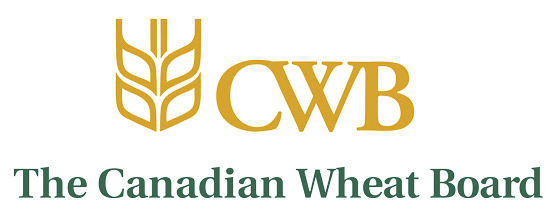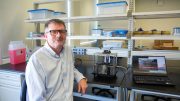Meghan Azad is a professor of pediatrics and child health at the U of M’s Rady faculty of health sciences. She is a research scientist at the Children’s Hospital Research Institute of Manitoba and director of the Manitoba Interdisciplinary Lactation Centre (MILC). She also holds cross-appointments in the departments of immunology, food and nutritional sciences and community health sciences.
During her postdoctoral research, she studied the infant gut microbiomes, finding that breastfeeding played a major role.
“When I started my own lab, I thought I wanted to understand that at a deeper, more molecular level,” Azad said. “So, I decided to study breast milk.”
She joined the microbiome project as part of the Canadian Healthy Infant Longitudinal Development study, a large national study involving 3,500 families across Canada.
The study aimed to understand why more children today are developing asthma and allergies by recruiting pregnant mothers and tracking various environmental and lifestyle factors. Her team analyzed the gut microbiomes of babies using diaper samples to investigate whether early microbial differences influence the development or prevention of various conditions.
“We saw that babies who were breastfed longer or more exclusively — meaning they got only breast milk, no formula, no other foods for the first number of months — they ultimately grew up to be the children with the lowest risk of asthma,” she said.
Azad analyzed breast milk samples collected during the study, securing grants to examine components such as fatty acids and hormones while exploring their potential significance.
“My vision as I started learning more about breast milk was really that there are so many things in breast milk,” she said. “There are for sure nutrients like fats, proteins, carbohydrates, vitamins and minerals because this is a food for a baby. But there are so many more other things. It is not only a food, it also contains antibodies from the mother, which helps protect the baby from infection. And
it contains hormones from the mom. It even contains cells from the mom.”
She aimed to study how various components of breast milk such as hormones and fats interact with one another, understanding that babies consume them together rather than separately. However, due to the high costs of research, she decided to take a step-by-step approach, starting with small grants to first analyze hormones and fats.
“We started to find some interesting things like babies drinking milk with higher levels of particular hormones might be more likely to have higher body fat composition,” she said.
Azad was approached by the Bill and Melinda Gates Foundation, who recognized her vision for comprehensive breast milk research, inviting her to lead a project on the subject.
Azad joined ongoing global studies focused on improving maternal and infant nutrition in regions affected by stunting and wasting.
While these studies provided nutritional supplements to pregnant women, they initially neglected breast milk analysis. Researchers recognized that better maternal nutrition could affect infants both during pregnancy and through breastfeeding, making breast milk a crucial factor for study.
Azad led the design of an ongoing research project to collect breast milk samples, with her team handling the analysis. This project is now known as the International Milk Composition Consortium.
“We have finished analyzing 2,000 milk samples for all the things that we can think of and we’re at the stage of crunching the data,” she explained. “From these 2,000 samples from 1,200 moms and babies who we have growth data on, can we identify patterns in the breast milk that are associated with healthy versus unhealthy growth?”
“I’m still working with that original CHILD study,” she said. “Those babies are now 13 years old, and we continue to follow them every few years. So, we can start asking questions beyond who got allergies as a baby and start looking at who’s getting diabetes as a teenager or who is developing behaviour problems or different types of outcomes. And so, I’m always interested in still linking within that cohort, the long-term outcomes of either breastfeeding or breast milk.”
Azad is launching new projects focused on breast milk’s role in supporting infant health. The projects will also explore the long-term health benefits of breastfeeding for mothers, including reduced risks of cancer and cardiovascular disease.
Azad added that breast milk contains antibodies that protect infants from infections and pointed to the continued potential for broader health applications.
“I think that the average person probably thinks of milk as food,” she said. “What I have learned is milk is so much more than food. We could think of it as an immune system for a baby. A baby is born with a very immature immune system. It can’t produce all its own antibodies, it’s getting it from [breast milk].”





